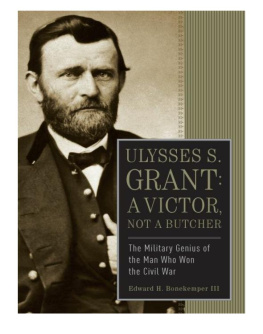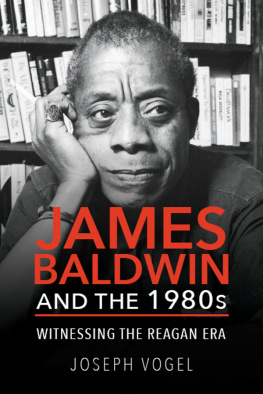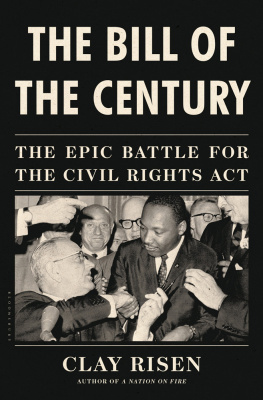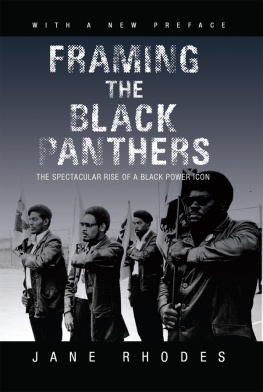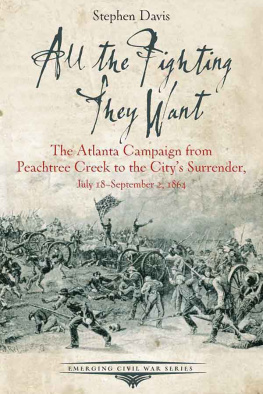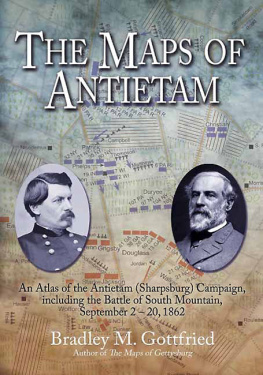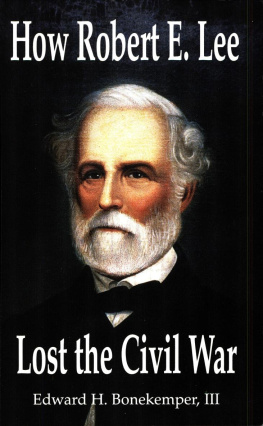PRAISE FOR
THE 10 BIGGEST CIVIL WAR BLUNDERS
While the study of the Civil War offers seemingly endless examples of splendid strategic planning, brilliant political maneuvering, and remarkable battlefield tactics, it also contains its share of missteps by individuals on both sides. In this thought-provoking, masterfully written, and prodigiously researched volume, Edward Bonekemper offers a critical analysis of ten of the conflicts biggest blunders. Students of the conflict who love to ponder the what-ifs of our nations most turbulent period will find this book both exceedingly interesting and entertaining.
Dr. Jonathan A. Noyalas, Director, Shenandoah Universitys McCormick Civil War Institute and author of Civil War Legacy in the Shenandoah: Remembrance, Reunion, and Reconciliation
Ed Bonekemper makes the most of the historians game of what if in this selection of The 10 Biggest Civil War Blunders. Even if you think you know most of what there is to know about that conflict, you will learn something new from his thoroughly researched and thoroughly readable analysis of key decisions that went awry.
Dr. Peyton R. (Randy) Helm, Emeritus Professor of History and President Emeritus, Muhlenberg College
Ed Bonekemper has written a book about the American Civil War which shows how human beings can blunder badly in warfare, oversee the loss of thousands of lives, and yet retain their soldiers support then and that of buffs later. This volume contains fascinating arguments that readers might debate but cannot ignore.
Dr. John F. Marszalek, Executive Director of the U. S. Grant Presidential Library at Mississippi State University and author of numerous books on the Civil War
Once again, Edward H. Bonekemper has made a significant contribution to the crowded field of Civil War studies. This time he trains his analytical sights on ten blunders committed by leaders wearing both blue and gray. In the process, he shows his remarkable grasp of the many dimensionssome not widely knownin which the Civil War played out. Did the Confederacy suffer from a self-inflicted economic wound when it embargoed cotton in hopes of forcing Great Britain to recognize it? Was there any chance that the South would be driven to use slaves as soldiers, on a promise of emancipation? Read this book and you will see Lee, Grant, and battle after battle in a new light.
Dr. Eugene Fidell, Senior Research Scholar, Yale Law School
As he has in previous books, Edward Bonekemper has used original sources and cogent analysis of his own and other historians to take a new look at history. The 10 Biggest Civil War Blunders takes to task the Unions and Confederacys topand belovedleaders and puts the blame on them for mistakes that cost tens of thousands of lives. Defenders of those leaders will find it hard to argue with Bonekempers well-researched reasoning.
Clint Johnson, author of ten Civil War books
Armchair strategists and weekend warriors should have hours of enjoyment critiquing and criticizing the politicians and generals whose blunders are collected here. As my friend Arnold Shaukman once said, History is supposed to be fun.
Dr. Richard M. McMurry, renowned Civil War scholar and author of Atlanta 1864 and several other Civil War books
Ed Bonekemper is a prolific author of Civil War titles, and his latest work, The 10 Biggest Civil War Blunders, may be the cream of the crop. Each of the ten chapters of the book focuses on a specific blunder by the political or military leadership of either the North or Southa blunder that, in the authors view, affected either the duration or the outcome of the war. At the beginning of each chapter, Bonekemper summarizes who blundered and how, and he speculates as to its consequences. No sacred cow of the era is spared in the process. Good generals like Grant and Lee come in for their share of the blame, not just maligned generals like McClellan and Bragg. Not even Lincoln escapes the charge of blundering. Readers may not always agree with Bonekempers choice of blunders or his main culprits. But the authors analysis of the consequences of the ten blunders will both challenge and delight readers who enjoy playing the what if game of counterfactual history. I enjoyed the book immensely, and I recommend it whole-heartedly.
C. Michael Harrington, Director, Houston Civil War Round Table, B.A. (Yale) and J.D. (Harvard)


Copyright 2018 by Edward H. Bonekemper III
All rights reserved. No part of this publication may be reproduced or transmitted in any form or by any means electronic or mechanical, including photocopy, recording, or any information storage and retrieval system now known or to be invented, without permission in writing from the publisher, except by a reviewer who wishes to quote brief passages in connection with a review written for inclusion in a magazine, newspaper, website, or broadcast.
Regnery is a registered trademark of Salem Communications Holding Corporation
Regnery History is a trademark of Salem Communications Holding Corporation
Cataloging-in-Publication data on file with the Library of Congress
ISBN 978-1-62157-760-7
Published in the United States by
Regnery History
An imprint of Regnery Publishing
A Division of Salem Media Group
300 New Jersey Ave NW
Washington, DC 20001
www.RegneryHistory.com
10 9 8 7 6 5 4 3 2 1
Books are available in quantity for promotional or premium use. For information on discounts and terms, please visit our website: www.Regnery.com.
This book is dedicated to these exceptional Muhlenberg College history professors: Edwin R. Baldrige Jr., Peyton R. (Randy) Helm (who also served as a great president of the college), Victor L. Johnson, John Malsberger, Joanne S. Mortimer, John J. Reed, and Daniel J. Wilson. For more than seven decades, they informed and inspired thousands of eager and not-so-eager students of history.
CONTENTS
O ne of the fascinating features of the American Civil War is its wealth of what ifswhat could have been done differently that would have affected the outcome of a battle, a campaign, or even the war itself. Some of the what ifs involve major failures of Union and Confederate political and military leaders.
After researching and writing six books about the Civil War, I decided to examine some of the more important and interesting blunders of that warmajor missteps that had a bearing on the duration or outcome of the war. Each of the six Union blunders discussed extended the war for months or years, causing countless additional casualties on both sides. The four Confederate blunders all resulted in missed opportunities for a possible Southern victory.
I have selected examples that call into question the performance of reputedly great Civil War generals like Robert E. Lee, Ulysses S. Grant, and William T. Sherman, as well as less effective generals such as George B. McClellan, Braxton Bragg, and Henry W. Halleck. Political leaders, including presidents Abraham Lincoln and Jefferson Davis, also committed blunders and, as a result, missed some glorious opportunities.
This book is about glaring blunders that substantially lengthened the Civil War or affected its outcome. That war, with its ten thousand battles and skirmishes, saw so many blunders that it is difficult to select a small number for in-depth examination while putting others to the side. I intend to discuss some of the others in a later book.
Next page

